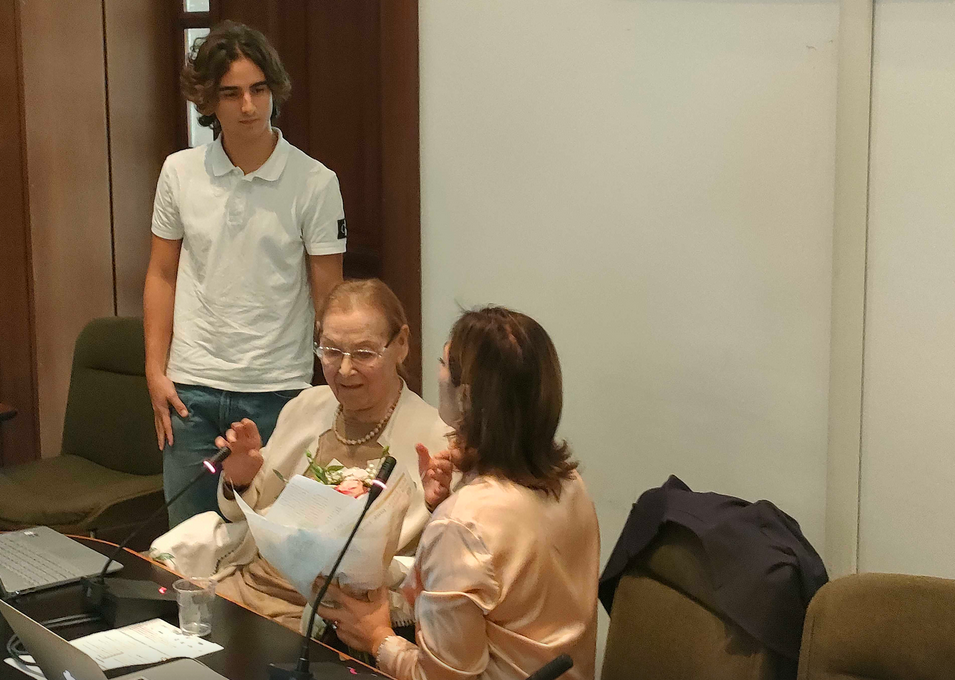ROME – Holocaust survivor and writer Edith Bruck: “It’s always worthwhile to bring testimony”

“I’ve been telling my story in schools for 60 years. Recently, I injured myself, so now I mostly do it through Zoom. But it is always worth it.” Holocaust survivor and writer Edith Bruck received applause from dozens of young people gathered at Rome’s National Library of Italian Judaism for the opening day of the second edition of the project Between Resistance and Surrender: To Survive Living Free! 80 years of the desire for freedom! This year’s focus is Hungary, “her” Hungary, where Bruck was born and from which she was deported to extermination camps after being arrested by local fascist gendarmes. Auschwitz, Dachau, Bergen-Belsen. “It’s always worth talking about it,” said the writer, who arrived in Italy in 1954, “because if I can leave a mark on just ten people, then even my survival will have had meaning.”
Bruck’s testimony has taken different forms over the years: speaking in schools, publishing books and poetry, and participating in television appearances when necessary. “I feel this is a moral duty,” she emphasized.
The Between Resistance and Surrender project, organized by the CDEC Foundation, offers students and teachers an educational journey with various meetings planned in the coming months, culminating in a study week in Budapest for 30 students. The topics addressed include “Memory and Resistance of Italian Jews,” “The Shoah between persecution and Resistance,” and “Forms of Holocaust Memory.” With guidance from historians Liliana Picciotto and Michele Sarfatti, the session also explored the life of Lutheran pastor Gabor Sztehlo, who, in Hungary under persecution, “went from being a bystander to a rescuer” and embodied an “ethic of the righteous,” akin to that of anti-Nazi German theologian Dietrich Bonhoeffer.
“Even in total darkness, there was light,” said Bruck, in conversation with Professor Deborah D’Auria, with support from CDEC director Gadi Luzzatto Voghera. “There was light in our neighbor who gave us flour for Passover on the eve of our deportation. There was light in the Nazi who pushed me toward the forced labor line rather than the crematorium line.” Bruck was introduced by UCEI President Noemi Di Segni, who remarked, “Hearing her words is a gift for us all.”
The project, backed by the Italian Christian Evangelical Baptist Union, also involves Rome’s Sapienza University and the University of Florence.
